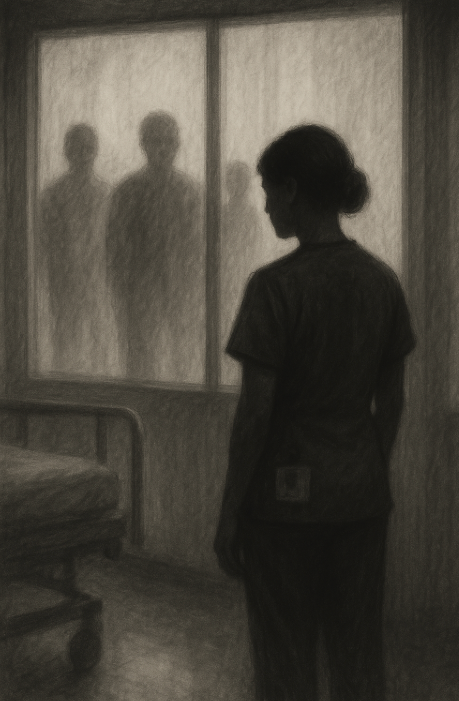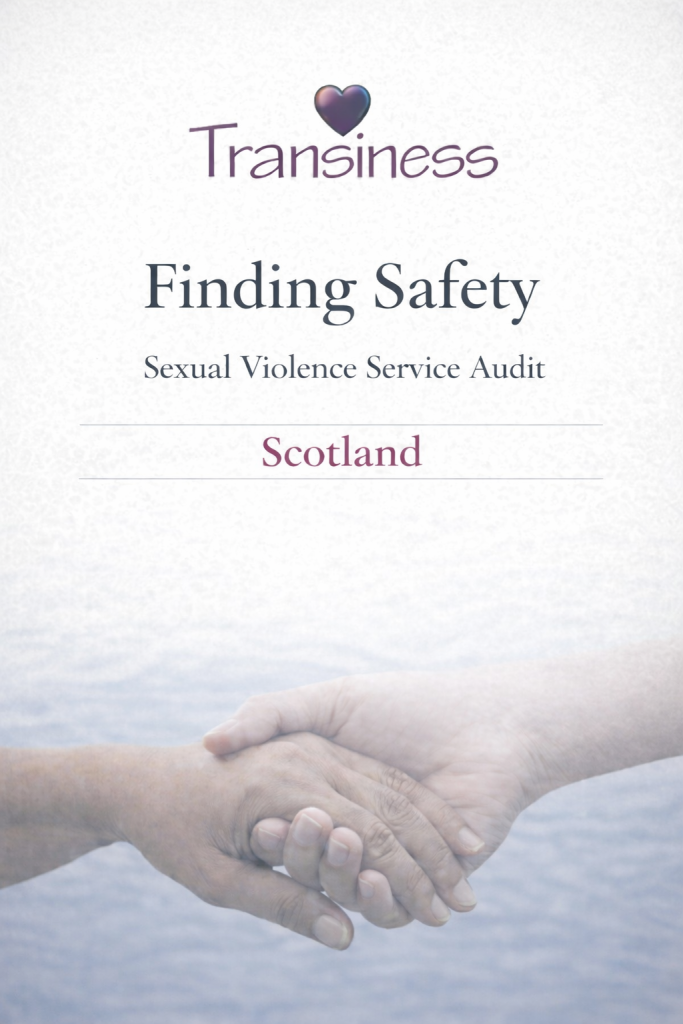This site is written for transitioned women, and for those seeking to understand the systems that affect our safety, dignity, and access to support.
Transiness is a research-led project focused on safeguarding, access, and structural harms affecting transitioned women. It was established in 2012 as a peer-led space providing emotional support for trans and non-binary people, originally operating as a small community on Facebook. Over time, the project evolved in response to the needs of its members and the changing social context in which that support was being sought. As the community developed, it became clear that the majority of active participants were transitioned women, and that this group was experiencing increasing social, safeguarding, and service-access pressures. In response, Transiness narrowed its focus to supporting transitioned women and began reassessing what forms of support were most effective.
As part of this shift, Transiness moved away from social-media-based support and developed into a research-led and engagement-focused project. Alongside formal reports and safeguarding work, we publish thoughtful blogs and reflections, including schema-based analysis and lived sense-making, as an intentional effort to reclaim epistemic authority — the right to define and interpret our own experiences. Our work now centres on evidence-based analysis, safeguarding, and direct engagement, recognising that emotional support alone is insufficient to address the structural conditions affecting transitioned women.
We examine how institutional policies, safeguarding models, and service-design frameworks render harm administratively invisible while displacing it onto transitioned women. Our work focuses on identifying these structural dynamics, documenting their consequences, and developing evidence-based frameworks capable of restoring proportionality, ethical safeguarding, and survivor-centred care.
We write about safety, healthcare, and embodied realities because these needs are routinely overlooked. Transitioned women are rarely conceptualised as people who require care, protection, or clinical understanding. As a result, essential knowledge simply does not exist elsewhere.
Alongside reports and reflective writing, Transiness publishes in-depth analytical briefings examining systemic safeguarding failures affecting transitioned women. These documents set out evidence, mechanisms of harm, and service-design failures in detail, and are intended for professionals, commissioners, policymakers, and others engaged in safeguarding and service provision.
Transiness is run entirely by and for transitioned women — those who have completed a medical transition. We have no external funding, and all work published on this site is undertaken voluntarily. This independence ensures our analysis remains accountable to the communities it serves, not to funders or institutional gatekeepers.
Why This Work Exists
Across healthcare, safeguarding, policing, and sexual and domestic violence services, UK institutions increasingly operate under frameworks that prioritise the subjective discomfort of a small but highly networked advocacy bloc that exercises disproportionate legal, regulatory, and media influence over the objective harm experienced by transitioned women.
This has produced a suffering-allocation hierarchy, in which the physical safety, psychological wellbeing, and dignity of transitioned women are systematically deprioritised in favour of institutional risk aversion and metaphysical certainty. The consequences are measurable and severe: dignity erosion, clinical harm, service exclusion, safeguarding failures, and the generation of institutional trauma for which no recovery pathways exist.
Transiness exists to make these mechanisms visible.
Explore the site
- Reports : Audit summaries, safeguarding assessments, and formal research outputs.
- Sexual Violence : Analysis of sexual violence services, including access, inclusion, and pathway risks.
- Domestic Violence : Information and analysis relating to domestic abuse services and safeguarding.
- Healthcare : Evidence-led discussion of healthcare access, ethics, and policy impacts.
- Current Issues : Current work, standards development, and direct engagement.
Contact
If you would like to get in touch regarding our work, safeguarding concerns, institutional engagement, or research collaboration, please contact: transinessadmin@protonmail.com
Recent Posts:
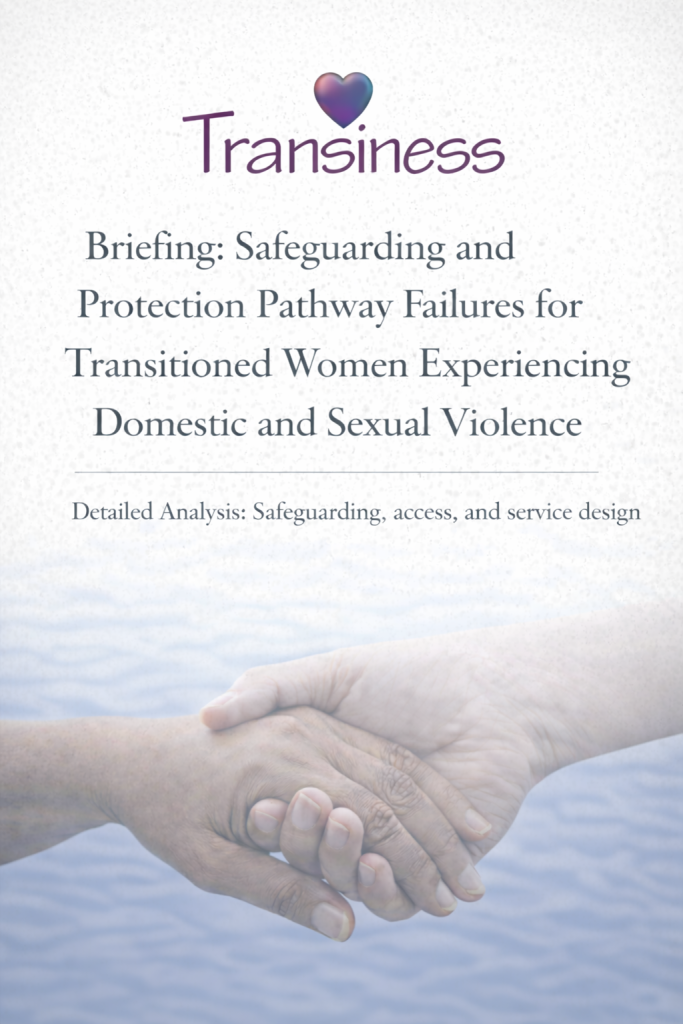
Safeguarding and Protection Failures for Transitioned Women Experiencing Domestic and Sexual Violence
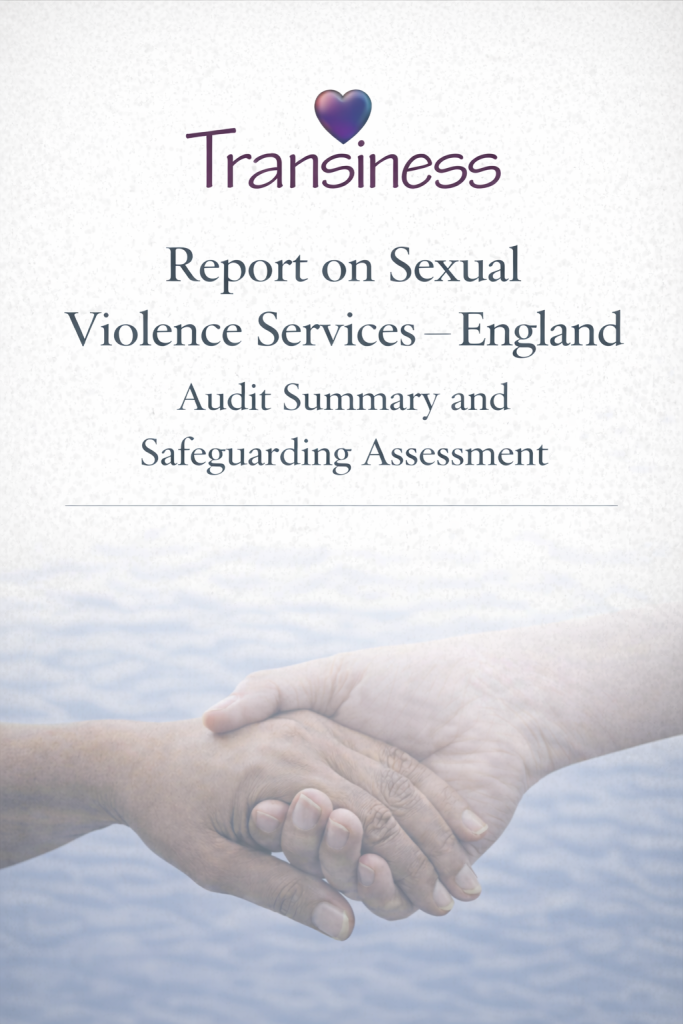
Transiness Report on Sexual Violence Services: England Audit Summary and Safeguarding Assessment
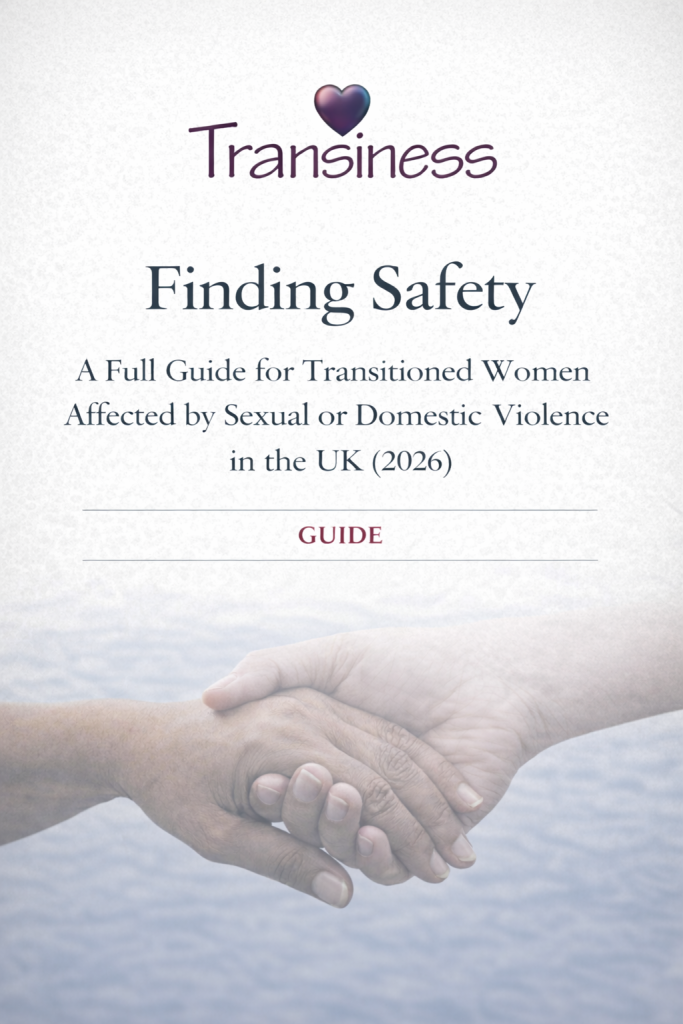
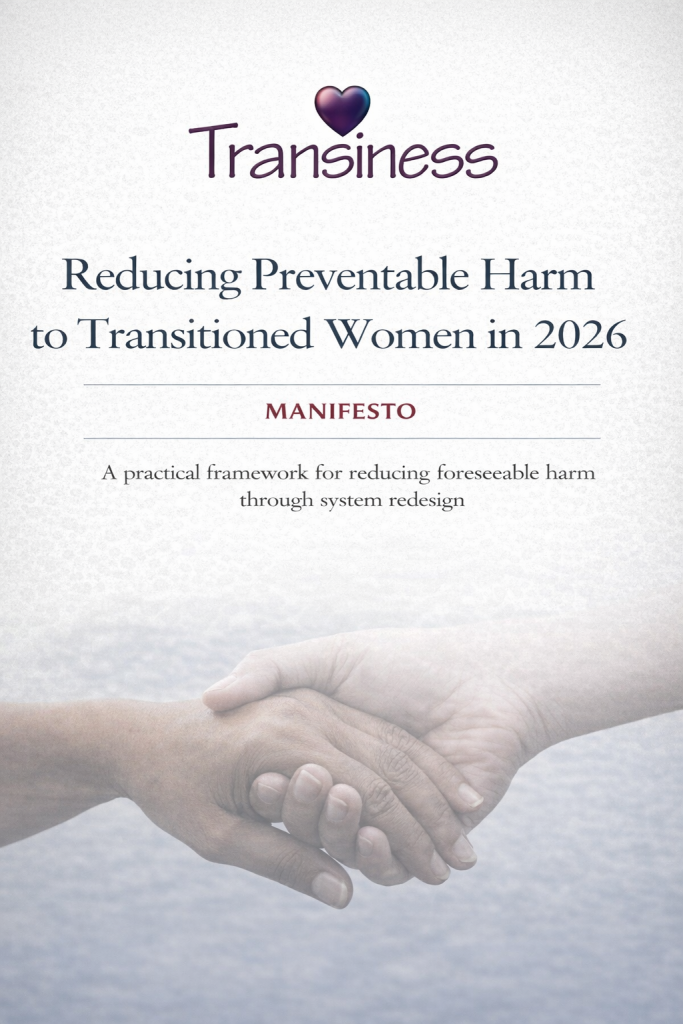
Our Manifesto: Your Guide – Improving Outcomes for Transitioned Women in 2026


Trans:gender · Refining a Word That Was Meant to Unite

Moral Schemas and the Death of Empathy

Analysis of “Searching Biological Sex Policy (Surrey and Sussex Police) (1248/2025)”: Transiness Special Report.
